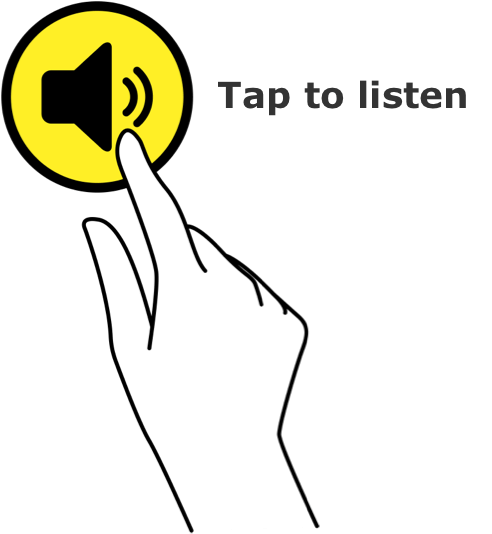Living with GA


GA stories
Listen to Bill′s story about living with geographic atrophy (GA).
Get to know Bill and his inspiring story. In this podcast, Bill Best shares his story about how GA affects his life. Bill Best was born in 1952 and lives in England. He developed GA in 2009 and talks about its impact and how he adapted to his changing vision.
Listen to the podcast
How to talk about GA
Talking to your eye doctor and family about GA is important. Here are some tips to start the conversation.
Be aware
Keep track of vision changes. For example, make note if you start to have trouble driving at night or need more light when reading.
For an easy way to help track vision at home, get the Amsler Grid
View the Amsler GridTell the whole story
Talk about how vision changes are impacting your life and ask about available resources to help.
Be open and communicate
If you have been diagnosed with age-related macular degeneration (AMD) or GA, changes in your vision can mean that your condition is getting worse. Talking to your eye doctor can help them to better monitor your disease.
The Doctor Discussion Guide can help you organise your thoughts and prepare for your next visit with your eye doctor
View the Doctor Discussion GuideKnow yourself
Vision changes can make many daily tasks harder or even unsafe. Take time to talk to loved ones about things that are becoming difficult and come up with a safe plan for moving forward together.
Bring them along
Just as vision changes may leave you feeling nervous or anxious, your loved ones may be experiencing similar emotions. It can help to attend eye doctor appointments together, so you can both ask questions and hear important answers.
For carers - If your loved one is experiencing vision changes:
Talk to them
Communicate with your loved one about their vision. If they are experiencing changes in vision, having trouble with daily tasks like driving at night or reading, or even tripping and falling more often, it′s important to encourage them to talk to their eye doctor.
Check in on their well-being
Changes in vision can be frustrating because people may feel like they’re losing independence. As their disease progresses, they may have trouble with daily tasks or recognising faces. Let them know that you are there to support them through every step of their journey with GA.
Be patient
Your loved one may need to rely on you to describe things they cannot see properly or read. They may also need you to help with daily tasks as their GA progresses. Keep reading to explore some ways you and your loved ones can make home life easier and safer.
Life at home with GA
Daily tasks can become more difficult as GA progresses and vision changes. There are many ways to change your living space to help you adapt to living with GA.
Lighting
The overall lighting in your home should be bright and consistent throughout.
Here are some of the ways to help achieve this:
Technology
Many electronic devices have accessibility features that can make them easier to use as your vision changes.
These include:
Other ways to make living at home more comfortable
Simple changes to your home can make a huge difference. Consider making some of these changes below to help you find what you need more easily:
Taking care of yourself and your eyes
Emotional health
Taking care of your emotional health is an important part of learning to adapt to life as your vision continues to change. If you experience any of these symptoms, try some of the following tips, and know that help is available.
Stay connected with friends and family so that you don′t feel isolated. Over time, you can find new ways to do the things you love or discover new hobbies that bring you joy.
Try relaxation methods, like breathing exercises and meditation, as they can help you with stress management and general well-being.
Seek support from your doctors, and from patient organisations and groups where you can connect with others also living with GA.
Eye-friendly foods
A nutrient-rich diet that includes vitamins and antioxidants can be beneficial for overall eye health.
Consider incorporating the following into your diet:
-

Dark green leafy vegetables
(every day) -

Fresh fruit
(every day) -

Fish
(two or three times a week) -
Low glycaemic index (low GI) carbohydrates instead of high GI
-
Nuts
(a handful a week) -
Limited intake of fats and oils




